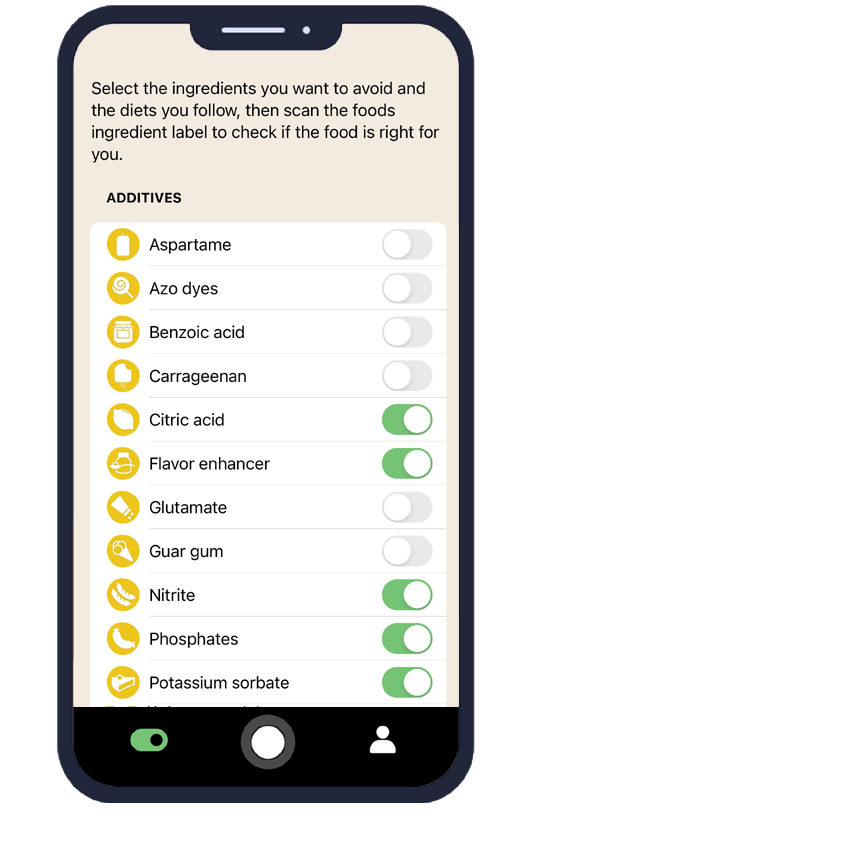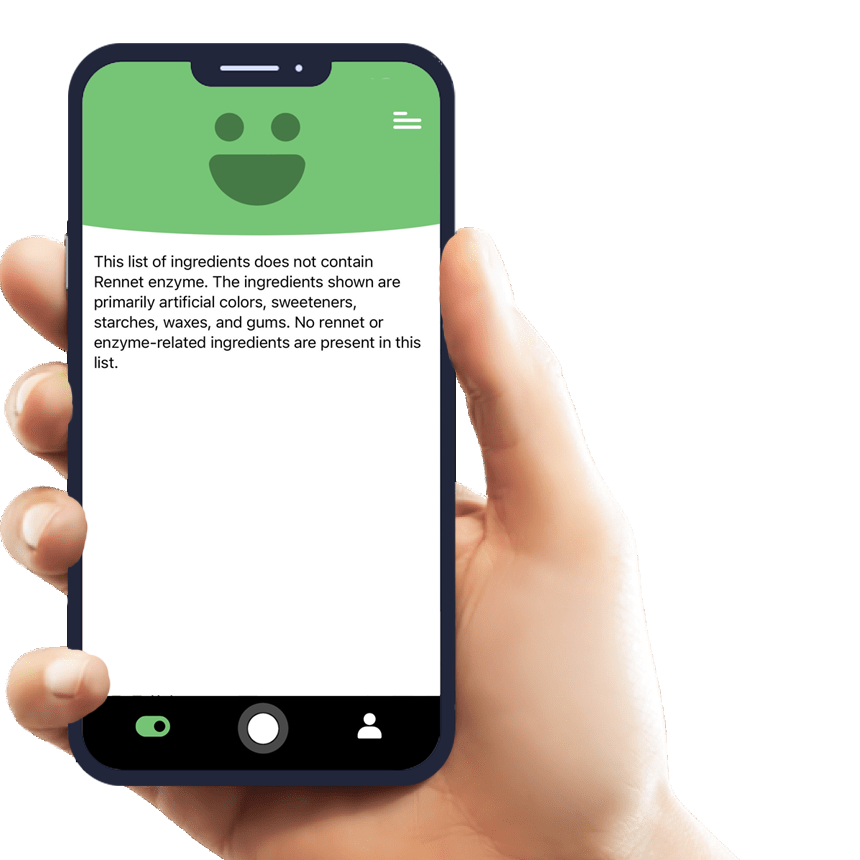Everything You Need to Know About Cocoa and How AI Eat This Can Help You Avoid It
Cocoa is one of the most beloved ingredients in the food industry, derived from the seeds of the Theobroma cacao tree. While many people enjoy chocolate and cocoa-containing products, some individuals need to avoid Cocoa due to allergies, intolerances, or specific dietary restrictions. Identifying Cocoa in processed foods can be challenging, especially when it appears under different names or in unexpected products.
The AI Eat This mobile app revolutionizes how consumers manage their dietary needs by instantly scanning ingredient lists and identifying Cocoa in any food product. This innovative tool helps millions of people maintain their health goals while navigating the complex world of food additives and allergens.
What Is Cocoa and Where Is It Used?
Cocoa refers to the processed form of cacao beans, which are ground into powder or processed into various forms for food production. This ingredient serves multiple purposes in the food industry, acting as a flavoring agent, colorant, and nutritional component. Cocoa contains natural compounds like flavonoids and provides the distinctive chocolate taste that consumers love worldwide.
In food manufacturing, Cocoa appears in numerous forms including cocoa powder, cocoa butter, cocoa liquor, and cocoa solids. Food manufacturers often use these different forms to achieve specific textures, flavors, and nutritional profiles in their products.
Common Foods Containing Cocoa
Cocoa can be found in an extensive range of food products beyond obvious chocolate items. Many processed foods contain Cocoa as a flavoring or coloring agent, making it essential for sensitive individuals to carefully read ingredient labels.
- Chocolate bars, candies, and confectionery products
- Baked goods including cookies, cakes, and muffins
- Ice cream, frozen desserts, and dairy products
- Breakfast cereals and granola bars
- Beverages like hot chocolate, chocolate milk, and flavored coffees
- Protein powders and nutritional supplements
- Sauces, spreads, and flavored syrups
Is Cocoa Safe? What Does the Research Say?
For the general population, Cocoa is considered safe for consumption and is approved by major health authorities worldwide. The U.S. Food and Drug Administration (FDA) recognizes Cocoa as Generally Recognized as Safe (GRAS) when used in accordance with good manufacturing practices.
The European Food Safety Authority (EFSA) has also evaluated Cocoa and its derivatives, confirming their safety for human consumption. Research has even highlighted potential health benefits of Cocoa, including antioxidant properties and cardiovascular benefits when consumed in moderation.
Regulatory Approvals and Guidelines
International health organizations, including the World Health Organization (WHO), have not established specific intake limits for Cocoa itself. However, they do provide guidelines for sugar and caffeine intake, which are relevant since many cocoa-containing products are high in these substances.
The safety profile of Cocoa is well-established through decades of research and consumption history. Most safety concerns related to chocolate products stem from added ingredients like sugar, milk, or nuts rather than the Cocoa itself.
Risks for Specific Groups
While Cocoa is generally safe, certain individuals may need to avoid it due to medical conditions or dietary restrictions. People with Cocoa allergies can experience reactions ranging from mild digestive discomfort to severe allergic responses requiring immediate medical attention.
Additionally, some individuals may have Cocoa intolerance, experiencing symptoms like headaches, digestive issues, or skin reactions. Those following specific dietary protocols or managing conditions like histamine intolerance may also need to limit or avoid Cocoa consumption.
How AI Eat This Helps You Avoid Cocoa
The AI Eat This app transforms the challenging task of identifying Cocoa in food products into a simple, instant process. Using advanced artificial intelligence technology, the app scans ingredient lists through your smartphone camera and immediately identifies Cocoa and its various forms.
Users can set personalized dietary filters that alert them whenever Cocoa appears in a product they're considering. The app recognizes Cocoa under all its alternative names, including cocoa powder, cocoa butter, cacao, and chocolate liquor, ensuring comprehensive protection for those with dietary restrictions.
The multilingual capability of AI Eat This means you can scan products in any language while traveling or shopping at international markets. This feature is particularly valuable for people managing Cocoa allergies or following strict dietary protocols who need consistent ingredient monitoring regardless of location.
Who Should Avoid Cocoa?
Several groups of people may need to avoid or limit Cocoa consumption based on health conditions or dietary choices. Individuals diagnosed with Cocoa allergy must completely eliminate this ingredient from their diet to prevent potentially serious allergic reactions.
People with caffeine sensitivity should be aware that Cocoa naturally contains small amounts of caffeine and theobromine, which can cause jitters, insomnia, or anxiety in sensitive individuals. Those managing histamine intolerance may also need to avoid Cocoa, as it can trigger histamine release in some people.
Individuals following specific dietary protocols, such as certain elimination diets or autoimmune protocols, may temporarily or permanently exclude Cocoa from their meal plans. Additionally, some people choose to avoid Cocoa for ethical reasons related to sustainable farming practices or fair trade concerns.
Tips for Maintaining a Cocoa-Free Diet
Successfully avoiding Cocoa requires vigilance and strategic planning, especially given its prevalence in processed foods. Reading ingredient labels carefully is essential, as Cocoa can appear under various names and may be present in unexpected products like flavored medications or cosmetics.
Focus on whole, unprocessed foods when possible, as these naturally don't contain added Cocoa. When purchasing packaged foods, look for products specifically labeled as "cocoa-free" or "chocolate-free" to ensure safety.
Communicate your dietary restrictions clearly when dining out or attending social events. Many restaurants can accommodate Cocoa-free requests if given advance notice. Always carry safe snacks and alternatives to avoid accidental exposure in social situations.
Utilize technology like the AI Eat This app to streamline your shopping process and reduce the risk of accidentally purchasing products containing Cocoa. The app's instant scanning feature saves time and provides peace of mind when managing dietary restrictions.
Conclusion
Understanding Cocoa and its presence in food products is crucial for individuals managing allergies, intolerances, or specific dietary restrictions. While Cocoa is safe for most people and even offers potential health benefits, those who need to avoid it face the ongoing challenge of identifying this ingredient in countless food products.
The AI Eat This app provides an innovative solution, making it easier than ever to maintain a Cocoa-free diet without sacrificing convenience or variety in food choices. By leveraging artificial intelligence technology, the app empowers users to make informed dietary decisions quickly and confidently.
Take control of your dietary health today – download AI Eat This for free testing and experience how technology can simplify managing your food additives and dietary restrictions!

70 filters
With over 70 filters, you can easily avoid certain ingredients and follow your dietary preference.

Paleo

Pescetarian

Ultra-processed food

Vegan







































































